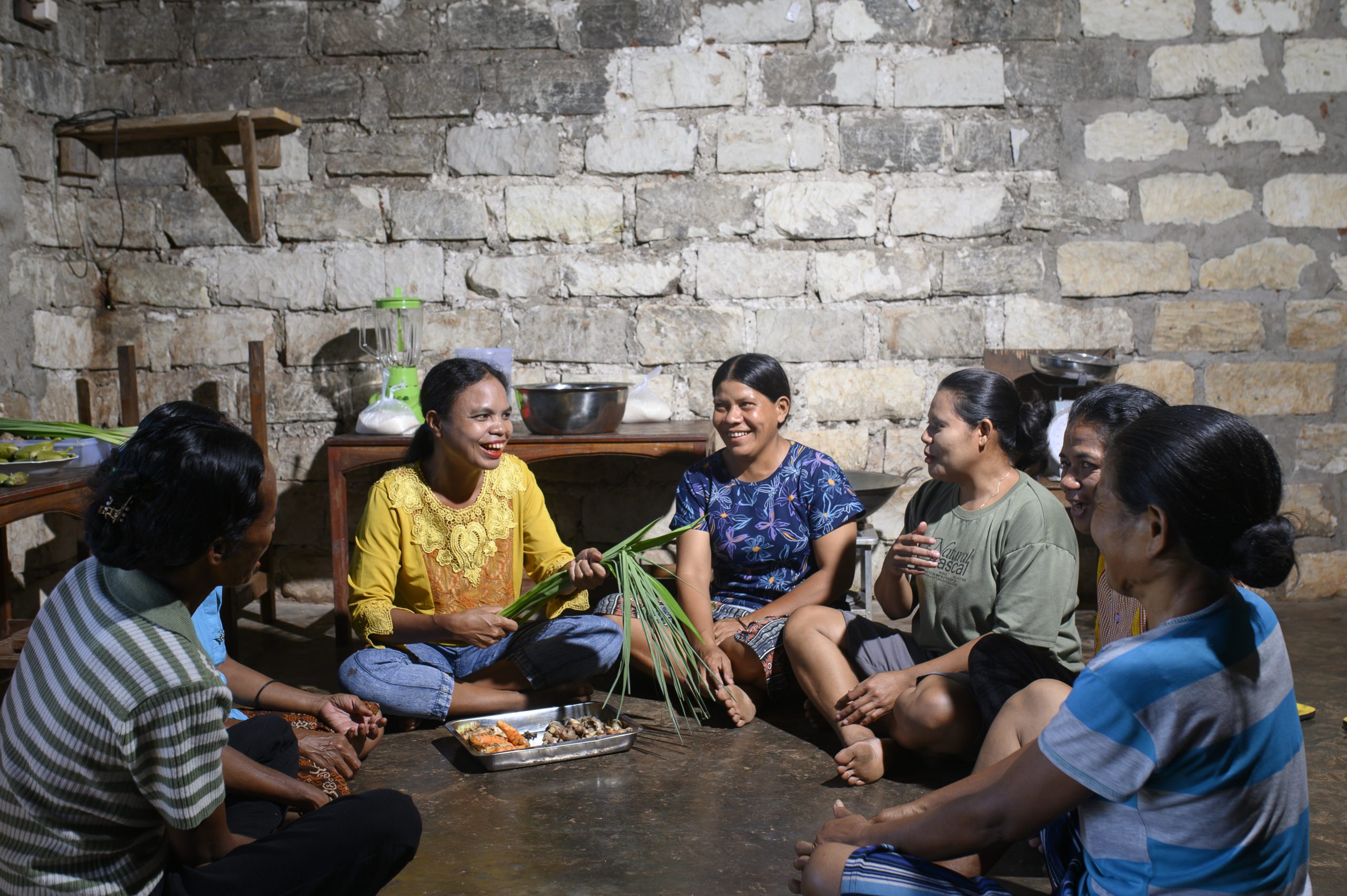
Buru Deilo is a small village located in the inland of the South Wewewa region, Southwest Sumba. It takes a 1-hour trip by car to get to this village from Tambolaka. The road is winding with broken asphalt and loose rocks.
That afternoon, primary school children were running here and there. They were extremely noisy. Some students looked curious when they saw people visiting to see or to buy VCO, lemongrass oil, or curcuma herbs at Mrs. Theresia Gheda Malo’s house.
Mrs. Theresia is a single mother who voluntarily made her house a place to meet and study with the village mothers. “Good morning. Come in,” she said.
Greetings according to the time are a habit of people in eastern Indonesia. This is a friendly greeting and not just small talk. If you visited this area, you would experience it, and it would warm your heart.
“The house where mothers meet,” said Theresia.
Then they laughed together. Rumah mamak-mamak is a phrase that describes their group. The group name is UKM Immanuel, consisting of seven village women. “Come on, do you want to try some herbs?” said Agustina Wini Bali, a group member.
Agustina was proud of the results of their collective work. She showed off a bottle of VCO, Virgin Coconut Oil, or pure coconut oil extracted from fresh coconut flesh. Another member showcased packages of herbs and ginger oil.
“We never thought of making these from coconut. In the past, coconut was processed into coconut milk and cooking oil,” said Alfiana Bela Sairo, a member.
These seven women are full of enthusiasm. They bought a blender, a coconut grater, and a packaging press after selling their products. This group slowly finds its work rhythm and enthusiasm. They meet every time. And, intensely, every week for production.
“Many people say that when women meet, they’ll start gossiping. We want to show that we can also do good things in the village,” said Alfiana.
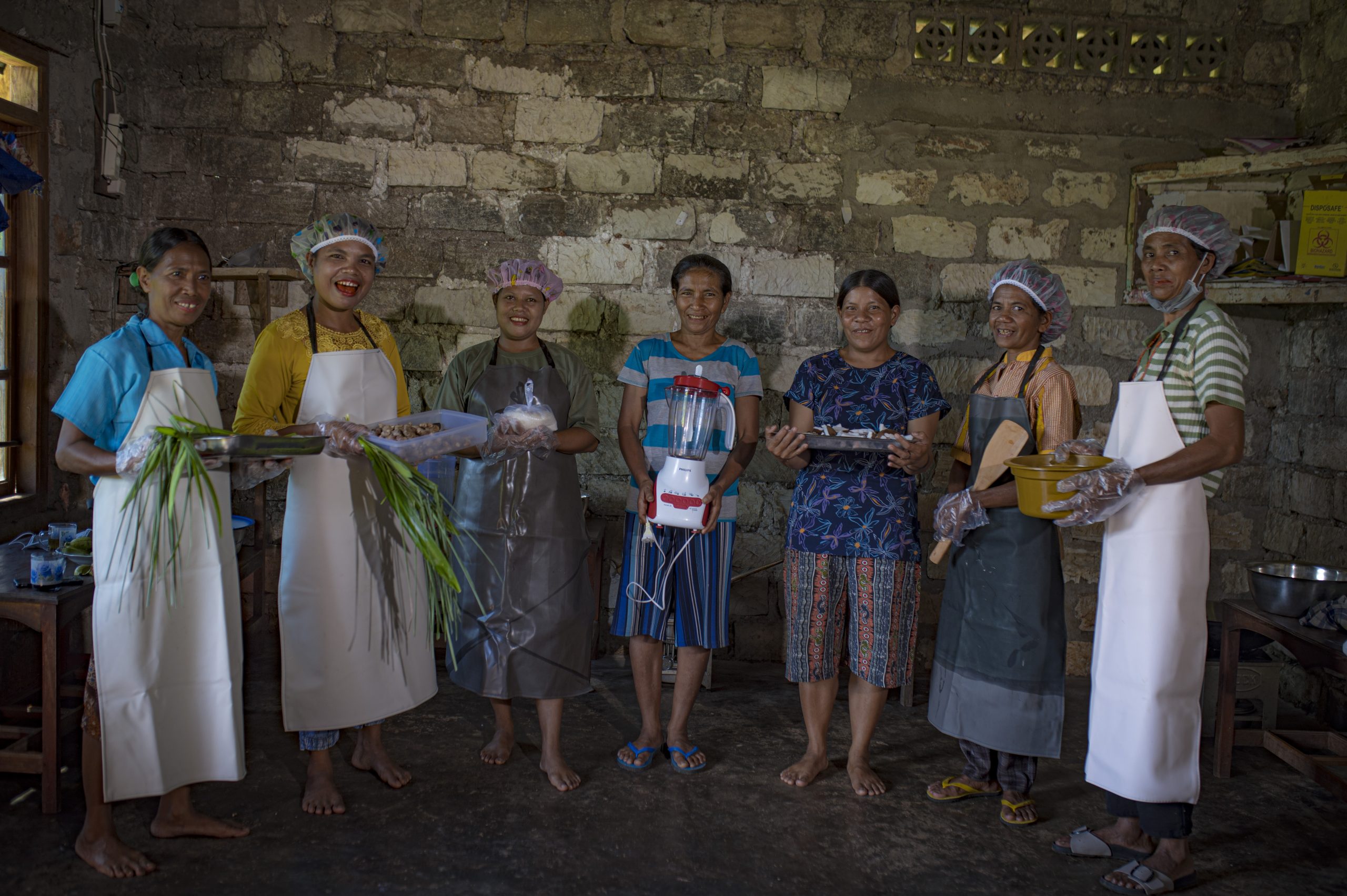
Learning from Experiences
Theresia is the leader of the UKM Immanuel group. Before working with the mothers, she was active in church and started a home business selling curcuma herb and ginger juice.
The business was not administratively neat. The products at that time were entrusted to others or stalls to sell. “Cannot see everything and control the sales. Some were not recorded,” she said.
When a non-profit organization, BaKTI Foundation, through the Inclusive Rural Community Livelihood Development Program in Eastern Indonesia (BangKIT), visited the village, Theresia was very excited.
BangKIT Program commenced its activities in 2023 and assisted in village development planning. This program targets the knowledge and self-awareness for the community to recognize potential and vulnerabilities.
BangKIT basically wants to find out how village development programs meet the needs of the inclusive villagers at all levels. Especially, the poor.
Theresia clearly remembers that the meetings and training she attended had opened her mind, and she began to consciously examine her weaknesses. “If you want to be independent (empowered), you shouldn’t be working alone. Work in a group for everyone to be successful,” she said.
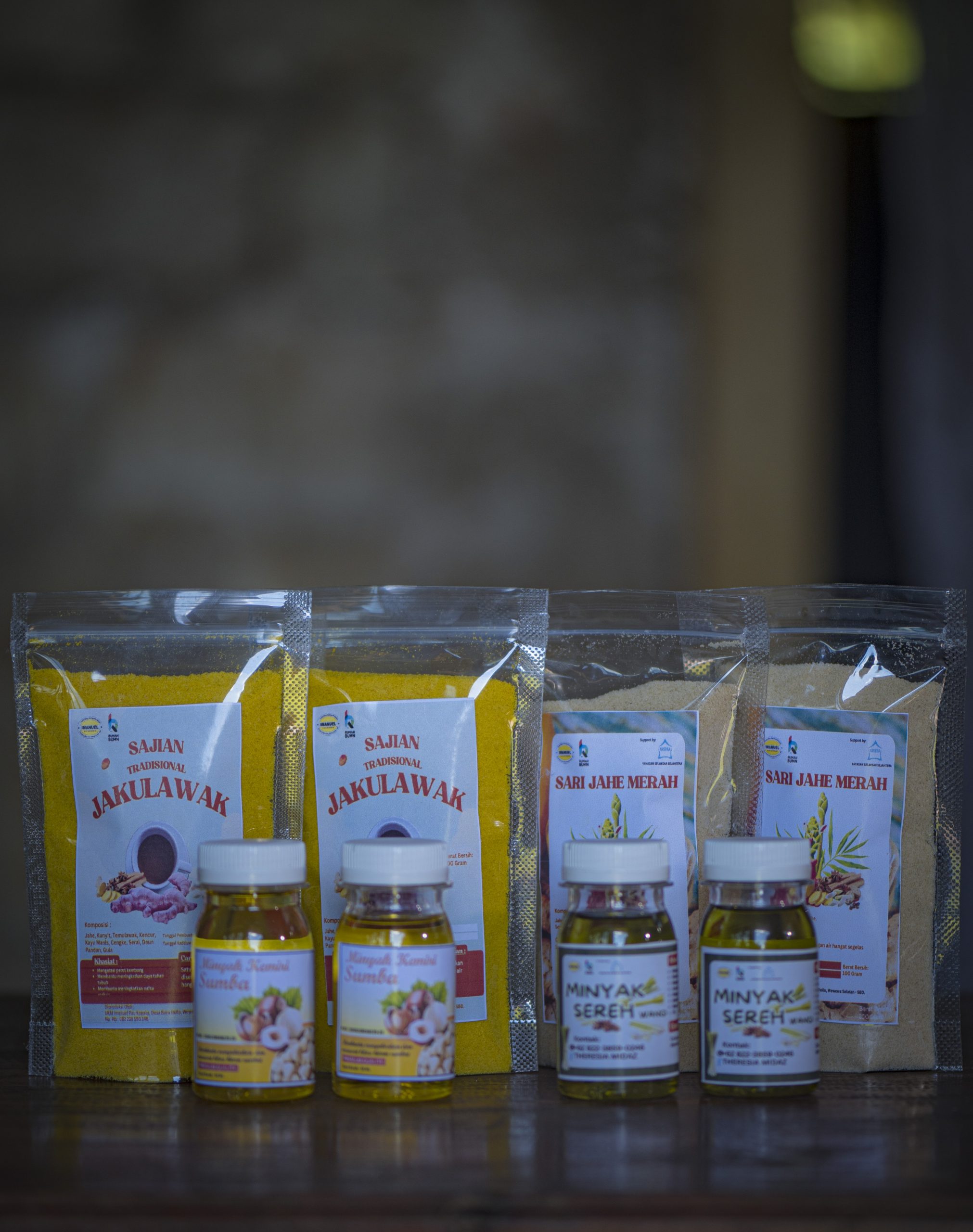
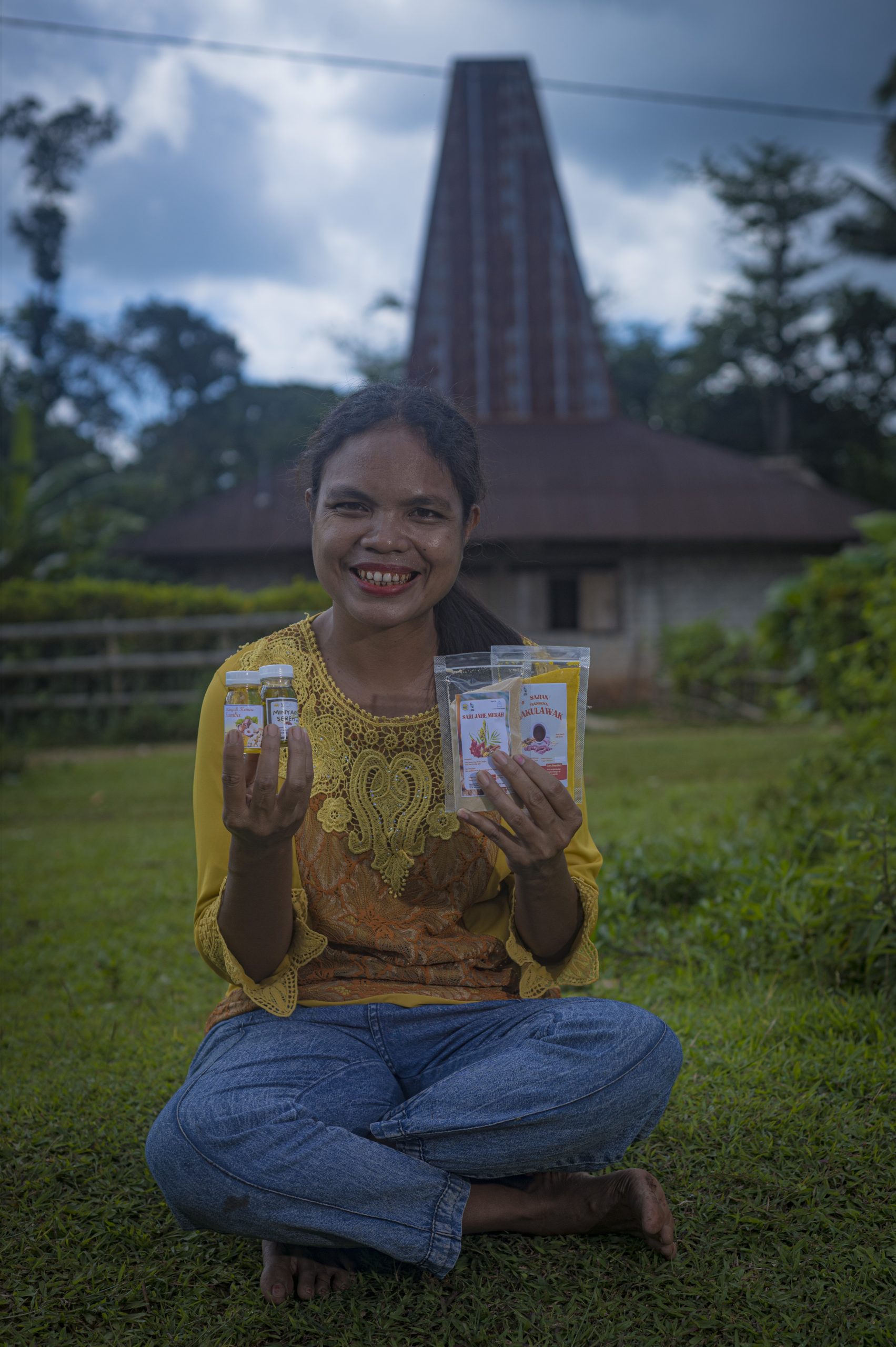
In June 2024, UKM Immanuel was formed. “It’s been a year, we are still together and are getting better,” she continued.
The assistance provided by the BangKIT team in bookkeeping has improved the group’s transparency. “We gain mutual trust and are being transparent. This is probably what keeps us together,” said Theresia.
The members of UKM Immanuel clearly remember the first time they started their business. Each member contributed money to buy basic materials. The capital was 36 thousand rupiahs. Other plant materials were taken from each member’s garden for free.
When they succeeded, the second production increased to 100 thousand rupiahs. They sell the products in their village. Now, one production requires 500 thousand rupiahs. And they start selling on the internet.
Theresia posts the products on Facebook to ensure monthly orders. Customers then place their orders via Facebook and the contact information in the product packages.
The group then procures a motorbike for product deliveries around the village and district areas. “A motorbike makes it easier. My son will deliver the products if it is far and the road is damaged,” said Theresia.
Before having a motorbike, some orders should be canceled due to rain and the faraway location, impossible to carry on foot.
At the moment, the group’s monthly production reaches 50 bottles of VCO sold for 15 thousand rupiahs. Lemongrass oil for 25 thousand rupiahs per bottle. And, the herb production reaches 100 packages per month. Curcuma and ginger extract are sold for 15 thousand rupiahs per package.
They grew awareness together. Using the sales, they bought aprons, gloves, and head coverings. They squeezed coconuts with clean hands. “We inform the buyers that we produce clean products,” said Rosalina Soli Lombo, a group member.
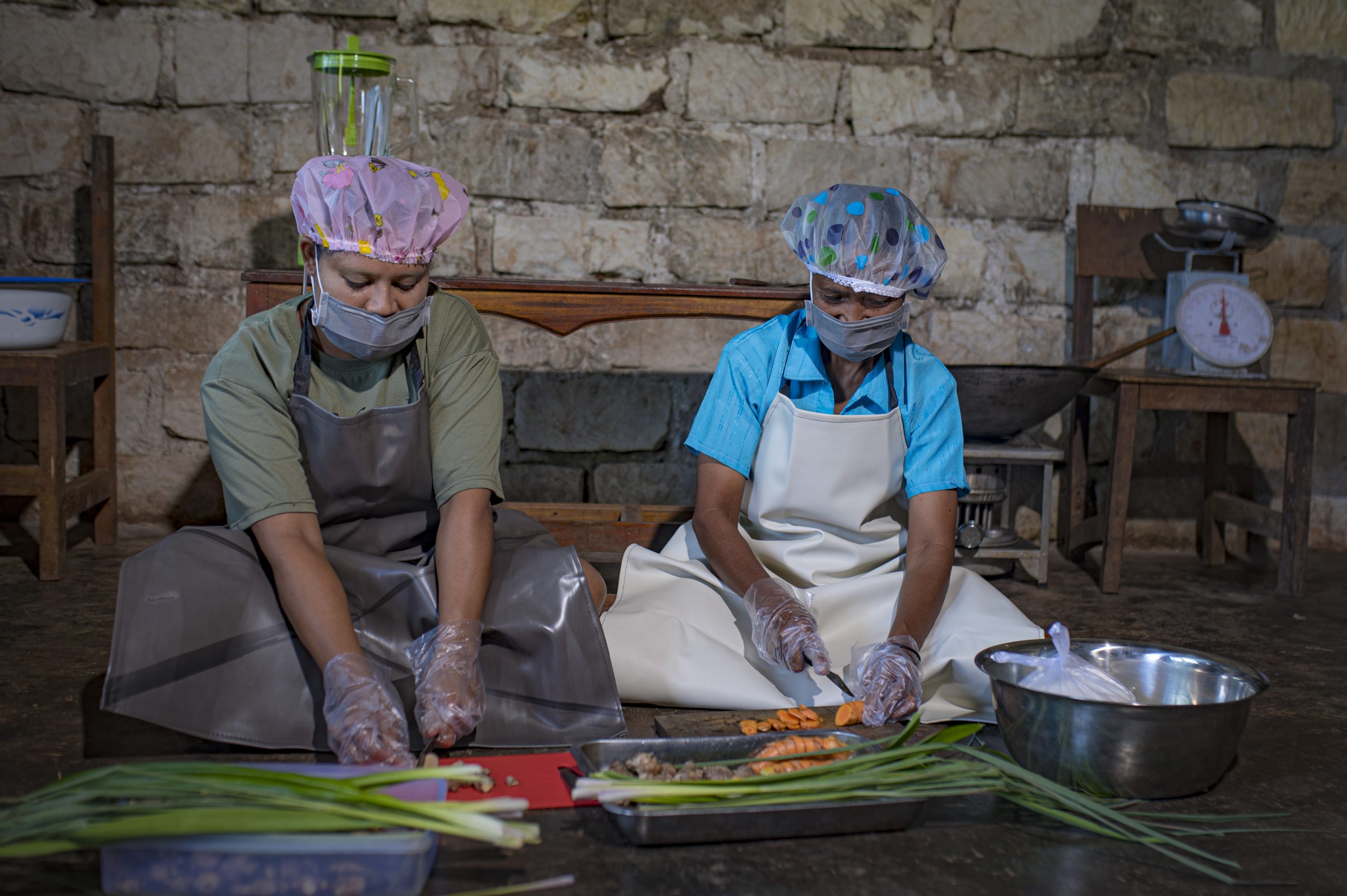
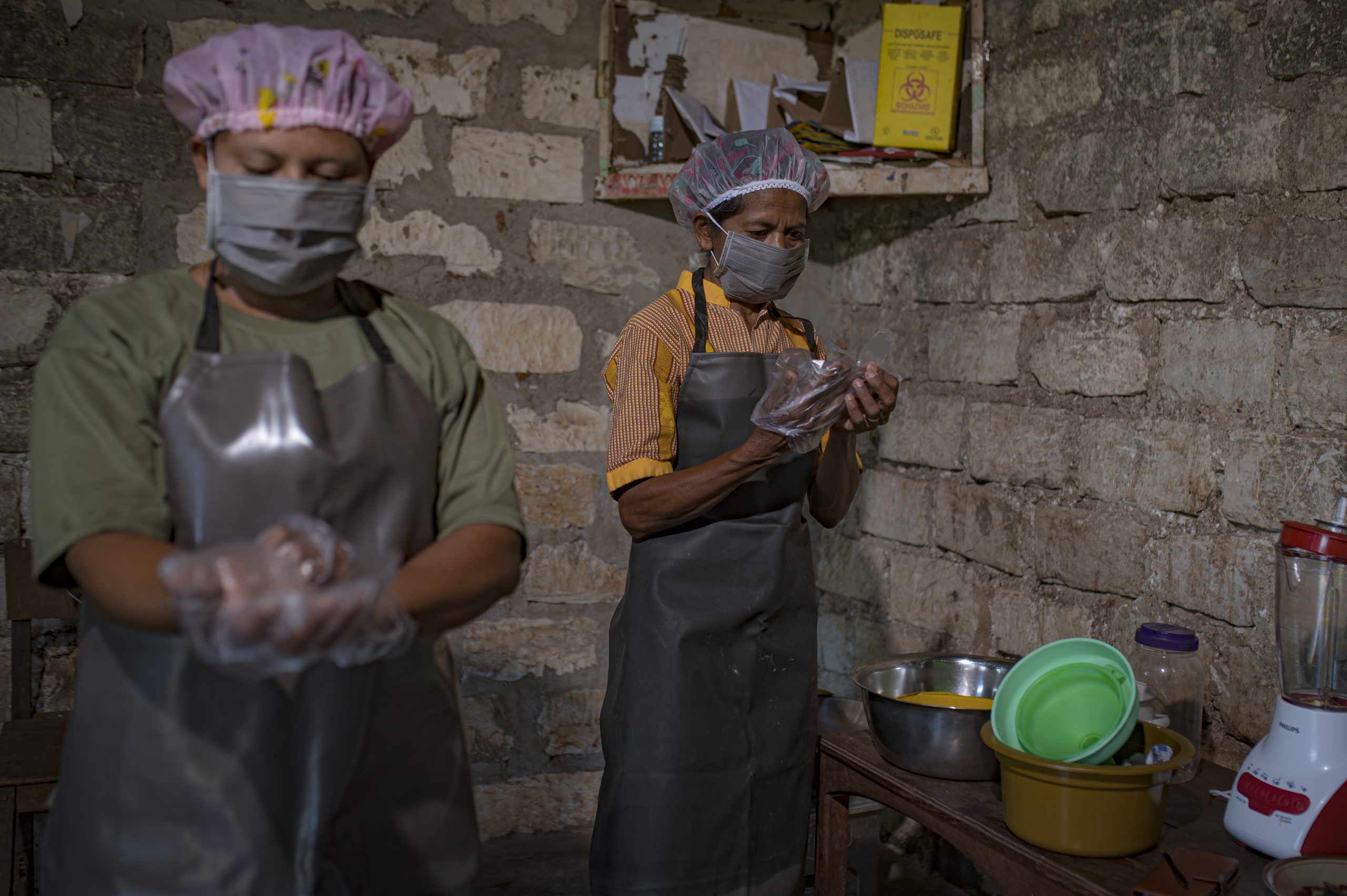
“We wear a head covering so that no hair falls out. And before we start the production, we clean the floor and all the equipment,” she continued.
Rosalina proudly shared about the business. “From this business, women finally gain an income to meet minor needs in the kitchen,” she said.
Business and Garden Integration
The raw materials for the UKM Immanuel production were initially taken and given by the group members voluntarily. Now they buy the materials, coconut, ginger, turmeric, curcuma, and ginger from the community.
The group buys these materials at market prices. The group members plan to make a garden to meet the production needs. The seven members of this group are female farmers. “We know how to plant. We garden. Eventually, we want to have our garden,” said Martha Bulu, a group member.
Martha is very happy to be part of the group. It gives her the knowledge and courage, figuring out that the foodstuffs around her can be processed into better products with economic value.
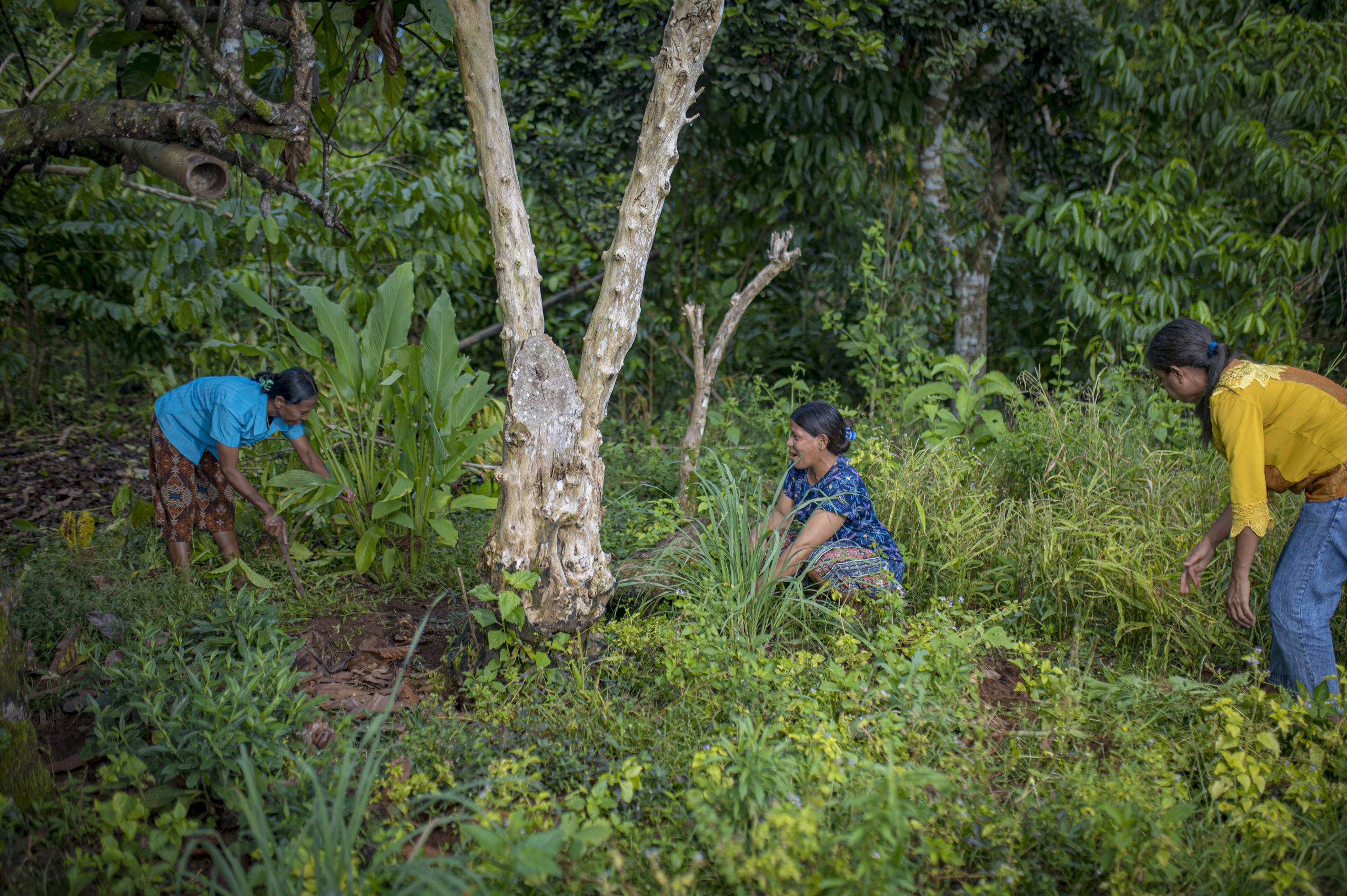
Theresia said, Buru Deilo is rich with natural resources. She believes that everyone can do a small home business. It takes perseverance and enthusiasm. The opportunities are wide open.
Bananas, for example, are simply consumed by people, boiled, fried, or eaten raw. It gains more value when it is processed. She said, one bunch of bananas in the market can be sold for 50 thousand rupiahs. Turning them into chips will at least double the price to 100 thousand rupiahs and last longer.
UKM Immanuel has just received a Home Industry Food Permit (PIRT) from the Health Office of Southwest Sumba District. This is an eligibility distribution permit issued by the Health Office for food and beverage products. This permit is a guarantee of food safety standards and product eligibility.

